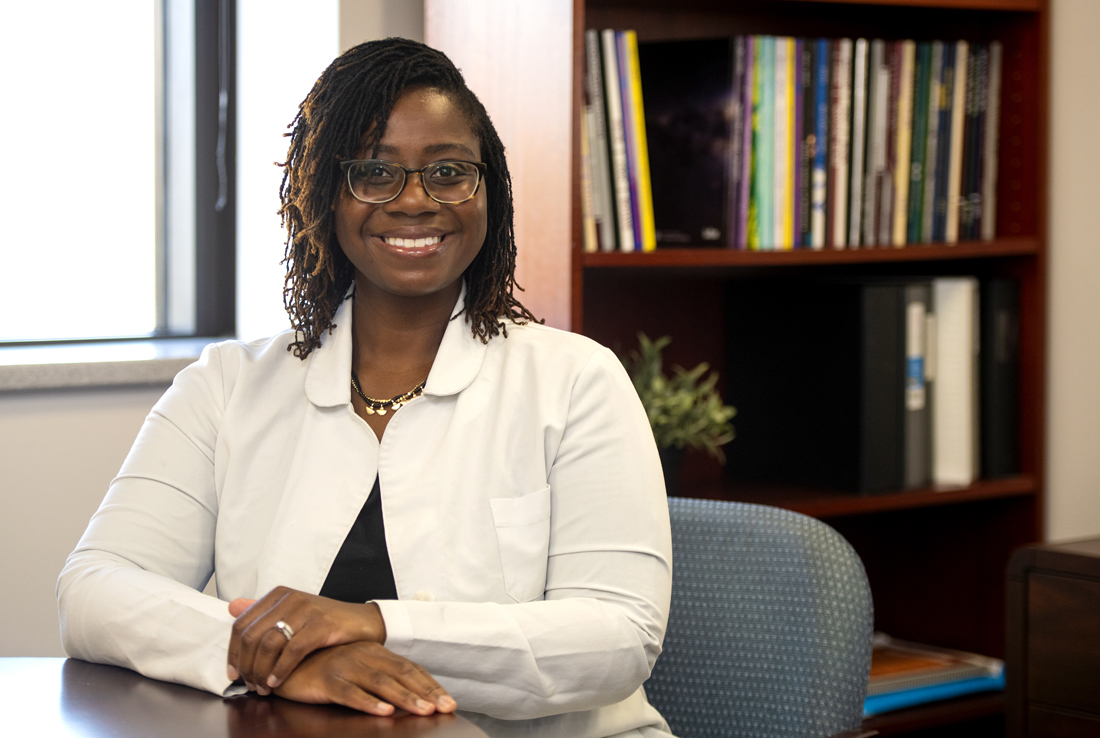Why I Teach: Part 2

Texas A&M College of Dentistry’s faculty members are universally dedicated. With multiple career options, what motivates someone to become a dental school professor? Is it a purposeful process or an unexpected discovery? A visit with a few A&M dental school instructors yields a variety of journeys with one common realization: the incomparable rewards of working with students and guiding them to their academic goals. The following is Part 2 of a multi-part series.
Dr. Patricia Simons
 “Academia – I love it,” says Dr. Patricia Simons ’14, director of student development, clinical assistant professor and director of the Post-Baccalaureate Program at Texas A&M College of Dentistry.
“Academia – I love it,” says Dr. Patricia Simons ’14, director of student development, clinical assistant professor and director of the Post-Baccalaureate Program at Texas A&M College of Dentistry.
Mentoring drives her enthusiasm, and Simons says it’s “a wonderful feeling” to have many of her own mentors still on campus and available to guide her. At the same time, she now has a hand in developing future dental professionals and educators.
“When I go to sleep, I feel this is how I’m serving with my dental degree. I get fulfillment and joy being here; academia is where I belong,” she says.
Simons discovered she liked teaching back in high school, when she tutored middle school and elementary students in math and English. She knew even earlier that she was called to mission-based work and serving the community.
She lights up when she discusses being able to do all those things in her current role.
“I also love being a motivational speaker, talking to students in college and high school,” she says. “Seeing a Black female in a white coat, that’s something I didn’t see often as a child. I have the opportunity to inspire and show students that they are more than capable of being the future doctors of our communities.”
Simons’ parents immigrated to the U.S. from Nigeria a few years before she was born and worked hard to enable their children’s education, she says. Seeing their sacrifices, work ethic and caring nature deeply influenced her career aspirations and her siblings’ as well.
“Not only am I doing this for me, I’m doing it for my family,” she says. “My parents got me on the right track with making my education a priority. I don’t know how to pay them back other than striving toward excellence and accomplishing things they paved the way for us to do.”
Early in her undergraduate years, Simons zeroed in on a career combining teaching with dentistry and began developing a support system of mentors. She participated in the college’s Summer Predental Enrichment Program and, though she was accepted to all three Texas dental schools, she says she chose the offer in Dallas due to the school’s diversity, mission emphasis and strong clinical program.
As a dental student, she took additional classes toward the health professions education certificate, completing it alongside her dental degree, and later earned the postdoctoral master’s degree. As that program’s director now, she guides current dental students who participate, in addition to myriad other roles that fill her work days, ranging from academic support responsibilities to teaching ethical-practice courses to dental and dental hygiene students.
“I want to help produce professional, empathetic, ethical and compassionate dental professionals,” she says. “It’s meaningful to play a role in the type of professionals we’re graduating to serve in the community.”
The time she invests in the summer pipeline programs yields big rewards, she says.
“Seeing the people you have mentored since they were in college or high school accomplish what they aspire to do, seeing what they’re doing in their communities, it’s the most amazing feeling,” she says.
She maintains an active role in the college’s recruitment and admissions process and, in 2017, Simons was a keynote speaker at an admissions event organized by the Texas Medical and Dental School Admissions Service, sharing her story and why she loved academia.
A group of students from the audience huddled around her afterward. One later said, ‘You got through to so many people, especially women and minorities. When we see someone who looks like us who’s seeing it through, that inspires us.’”
Simons saves the cards, emails and notes she receives from students. That encouragement provides “a second wind” and helps her recharge, she says.
“If what I’m doing is influencing people in a positive way, that makes me optimistic about the future,” Simons says.